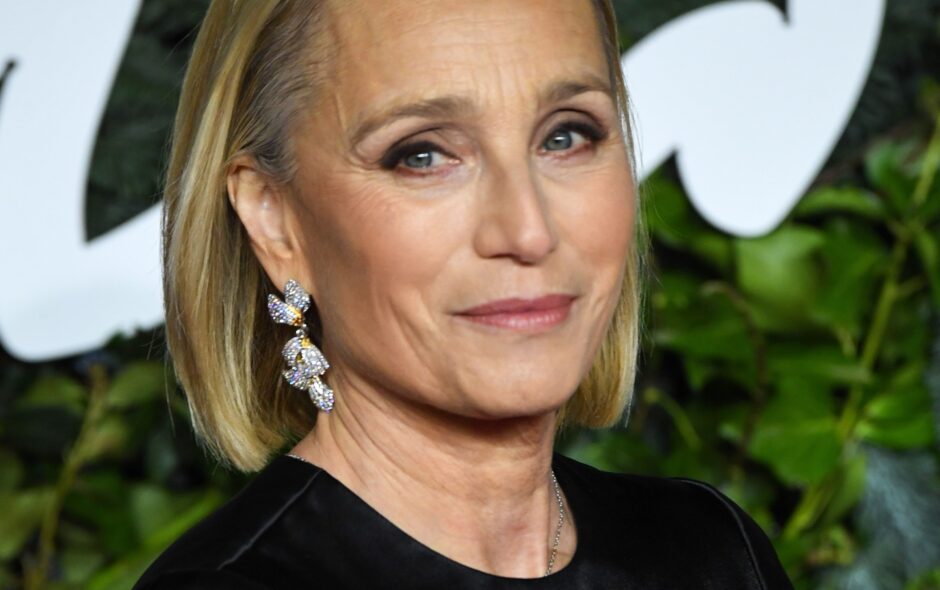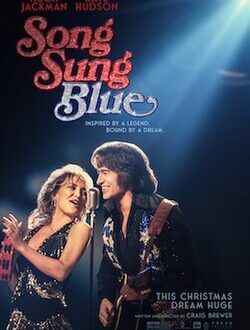Kristin Scott Thomas has always seemed to inhabit a rarefied space in cinema and theater, an actress whose elegance and restraint are as unmistakable as her command of character. With a career that has spanned more than four decades and taken her from stage to screen, from English-language blockbusters to French arthouse dramas, she has built a reputation not only for her luminous presence but for her sharp intelligence and versatility. Her most recent work in Slow Horses, where she plays Diana Taverner, a calculating figure at the top of the British intelligence service, is yet another reminder of her ability to bring poise and menace together in a single performance.
Born in Cornwall in 1960, Scott Thomas was raised partly in Dorset after her father, a naval pilot, was killed in a flying accident when she was young. Her stepfather, also a pilot, later died in a similar tragedy. Such early brushes with loss gave her a perspective that has always seemed to inform her work, a sensitivity that lies beneath even her most restrained characters. She trained first in drama in the United Kingdom but soon moved to Paris, where she studied at the École Nationale supérieure des arts et techniques du théâtre. The move to France would shape her life and career in profound ways, giving her fluency in French and opening opportunities in European cinema that she would seize repeatedly throughout her career.
Her breakthrough role came in 1986 opposite Prince in Under the Cherry Moon. The film itself was widely panned, but Scott Thomas stood out, and her career began to gather momentum. Hollywood took notice, and she appeared in a string of projects that showcased her ability to shift between sophistication and vulnerability. It was in Four Weddings and a Funeral in 1994 that she first captured the wide admiration of audiences with her portrayal of Fiona, the sharp-tongued but ultimately wistful friend whose unspoken longing for Hugh Grant’s character lent the romantic comedy a surprising depth.
Three years later, she reached international acclaim with The English Patient. Her role as Katharine Clifton, the elegant and doomed lover in Anthony Minghella’s sweeping epic, earned her an Academy Award nomination and confirmed her as one of the most luminous screen presences of the era. With her clipped diction, sculpted features, and air of refinement, she embodied a kind of classic romantic heroine, but her performance also revealed the contradictions and complexities beneath the surface. It was a role that demanded both passion and restraint, and she delivered both with searing clarity.
Scott Thomas could have settled comfortably into Hollywood stardom, but her career has always reflected a determination to chart her own path. She frequently chose to work in French cinema, appearing in acclaimed films such as Tell No One and I’ve Loved You So Long, the latter earning her rapturous reviews and numerous awards. In these performances she demonstrated a willingness to strip away glamour, portraying women marked by hardship, grief, and resilience. Fluent in both English and French, she moved between the two industries with unusual ease, becoming an artist whose career was transnational, never defined by one market or one type of role.
Her theater work has also been central to her artistry. She has taken on some of the greatest challenges in the repertoire, including Chekhov’s The Seagull and Ibsen’s The Three Sisters. On stage she has displayed the same qualities that define her screen work: precision, control, and an ability to convey oceans of feeling with the smallest shift in expression. Critics often remark on her stillness, a quality that compels audiences to lean forward, to search her face for the emotions that ripple beneath the surface.
Over the years, Scott Thomas has cultivated an image of reserve that mirrors many of her characters. Yet beneath that public persona lies a daring streak, evident in the risks she has taken with her roles. In I’ve Loved You So Long, she played a woman released from prison after serving a long sentence for killing her young son, a role that required immense sensitivity and fearlessness. In Only God Forgives, she shocked audiences with her portrayal of a venomous and manipulative matriarch, proving once again that she was never content to rest in typecasting.
In Slow Horses, Scott Thomas brings her gifts to the role of Diana Taverner, Deputy Director-General of MI5. Taverner, nicknamed “Second Desk,” is a woman of immense ambition, forever balancing loyalty to her agency with her own drive for power. The role is a perfect fit for Scott Thomas’s style: she exudes authority in every clipped line, every narrowed glance, yet always leaves space for ambiguity. Her Diana Taverner is never entirely trustworthy, nor is she entirely villainous. Like so many of Scott Thomas’s characters, she inhabits the gray spaces where motives are layered and human complexity prevails.
What makes Scott Thomas unique among her contemporaries is her refusal to be pinned down. She has been described as aristocratic, yet she can vanish into gritty roles without a trace of glamour. She has played passionate lovers, haunted mothers, icy executives, and tragic heroines, all with the same commitment to truth and detail. Her bilingual career has made her a rare figure who is equally at home in Cannes and Hollywood, in arthouse cinemas and on the West End stage.
Now in her sixties, Scott Thomas continues to bring a commanding presence to her work. There is no sense of slowing down, no diminishing of her willingness to take risks. If anything, her performances carry even greater weight as she leans into roles that explore power, maturity, and the complexity of aging. Her career demonstrates that longevity in the arts comes not from repeating oneself but from embracing change, from the courage to inhabit new lives again and again.
Kristin Scott Thomas remains one of the most compelling actresses of her generation. Her work is defined not only by elegance and restraint but by daring choices and an unyielding pursuit of authenticity. Whether playing a doomed romantic, a grieving mother, or a ruthless spy chief, she brings to every role a sense of depth that lingers long after the final scene. It is this ability to embody contradictions—grace and steel, vulnerability and authority—that has made her career so enduring and so admired.




